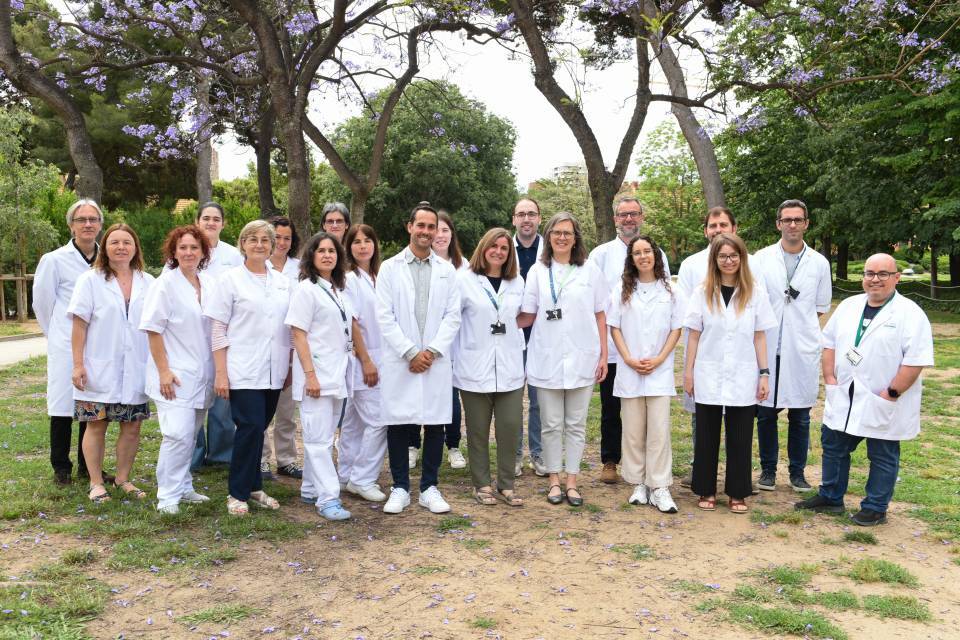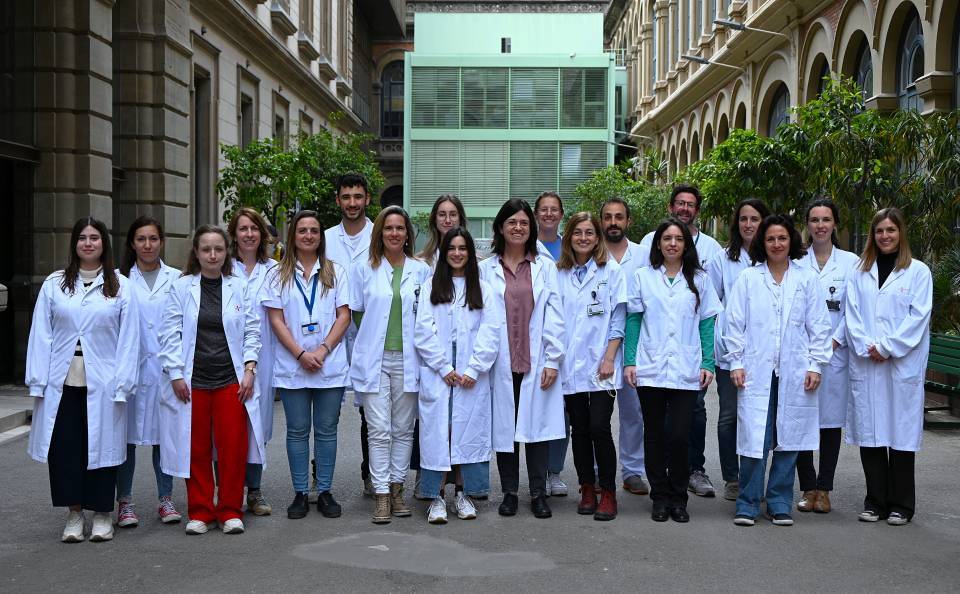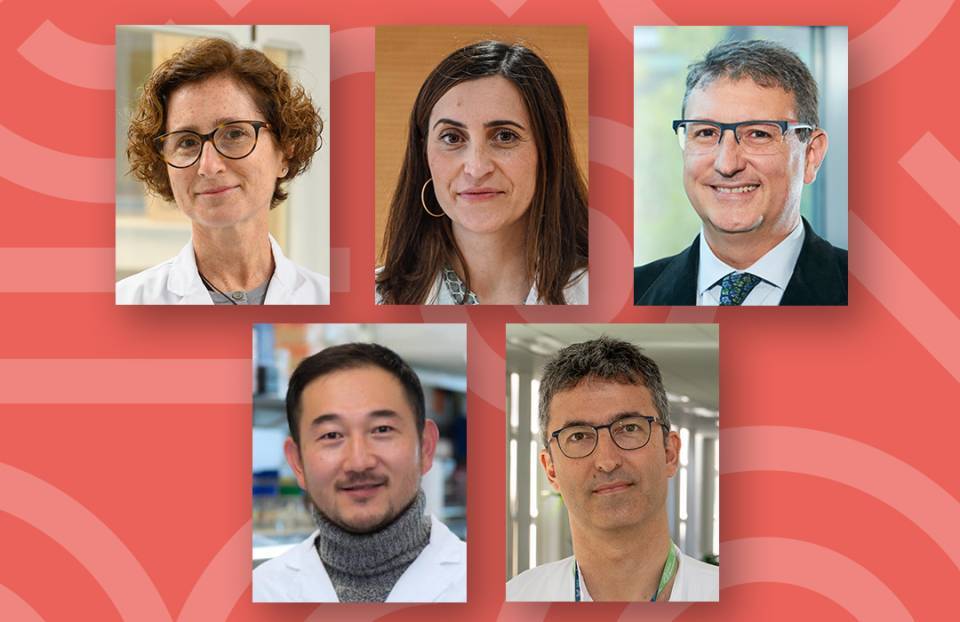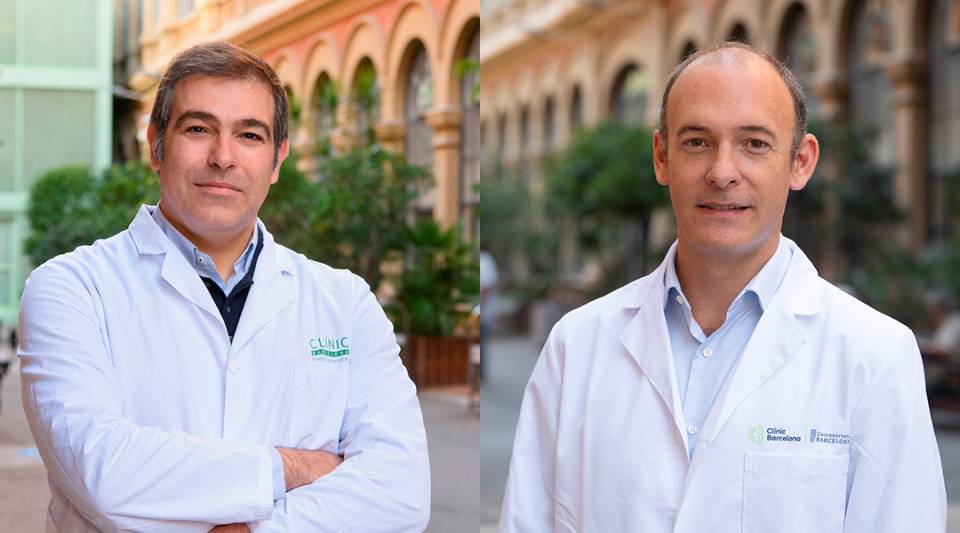A multicentre study for the early detection of rare diseases
The CrinGenES project will be carried out with 2,500 newborns from nine autonomous communities (Galicia, Madrid, Andalusia, Aragón, Asturias, Catalonia, La Rioja, Murcia, and Valencia), thanks to a €2.4 million grant from the Carlos III Health Institute (ISCIII) with Next Generation EU funds for 2025 and 2026.
The consortium is made up of 71 professionals from different fields, including specialists in neonatology, genetics, paediatrics, laboratory professionals, nursing, and public health, and is led by Dr María Luz Couce (Health Research Institute of Santiago de Compostela) and Dr Miguel Ángel Moreno Pelayo (Hospital Ramón y Cajal-IRYCIS). The Spanish Federation of Rare Diseases (FEDER), specialists in economic evaluation, and experts in bioethics are also participating, and the project has the support of the health departments in the participating autonomous communities.
In Catalonia, the project is led by Dr Judit García Villoria, head of the Congenital Metabolic Disorders Section of the Biochemistry and Molecular Genetics Service at the Clínic’s Biomedical Diagnostic Centre (CDB) and researcher in the Translational research group in new therapeutic and diagnostic strategies in liver diseases group at IDIBAPS and CIBERER.
What is newborn screening and why expand it?
Newborn screening is a public health tool that allows serious congenital diseases to be detected before symptoms appear, facilitating early treatment and improving the prognosis for babies. Currently, between 11 and 44 diseases are diagnosed in Spain using this system. However, there are around 7,000 rare diseases, most of which are genetic in origin, and advances in genetics and treatments are opening the door to expanding the number of diseases that can be detected early. "A pilot project of this kind could represent a very significant advance in newborn screening", says Judit García Villoria.
How does the CrinGenES project work?
The project consists of complementing conventional newborn screening with genomic analysis from the same blood sample that is routinely collected and including diseases for which there are currently no biochemical detection markers, but therapeutic options do exist. Complete genomic sequencing will be performed on 2,500 newborns, rigorously selecting genes associated with more than 300 rare diseases with paediatric onset and options for treatment or early intervention.
The participating families must give their informed consent and, in the event of a positive result, will receive genetic counselling. The economic impact of implementing this new screening in the healthcare system will also be assessed.
In Catalonia, families will be recruited at the Hospital Clínic Maternitat Centre and at the Hospital Sant Joan de Déu, under the coordination of Dr Ana Alarcón, head of the Neonatology Service at the Hospital Clínic and the Hospital Sant Joan de Déu, with nursing professionals from both hospitals: Sonia Santacruz, at the Clínic, Benigna Guillén Quílez, at Sant Joan de Déu, and with case manager Sara Fernández.. The positive cases will be referred to the expert units in the Network of Units of Clinical Expertise (XUECS) under the coordination of Dr Carlos Ferrer (CAPSBE).
The Hospital Clínic is one of the three centres where the genomic analysis of the samples will be carried out, in the ECM-BGM Section and in the Molecular Biology Core of the CDB, with the participation of doctors Laura Gort, José Manuel González d’Aledo, Joan Anton Puig, José Luis Villanueva, Xavier Solé, Aina Montalbán, Edgard Verdura and Mar Navarro. This sequencing will be carried out using the NovaSeq-X Plus system, which was incorporated recently by the Clínic and is the most advanced and highest capacity system on the market.
All non-targeted metabolomics studied carried out in the context of this project will also be centralized to help interpret genetic variants and identify new biomarkers, in order to increase the sensitivity of disease detection with genome analysis, with the collaboration of Rosa María López, Ana Argudo, Javier Laguna, and Joana Faneca. Antònia Ribes (IDIBAPS emeritus) is also an advisor to the project.
European leader in newborn screening innovation
With this project, the Hospital Clínic Barcelona and the other participating centres are at the forefront of European research into and the implementation of genomic newborn screening programmes, to improve the detection and early treatment of rare diseases in children.




